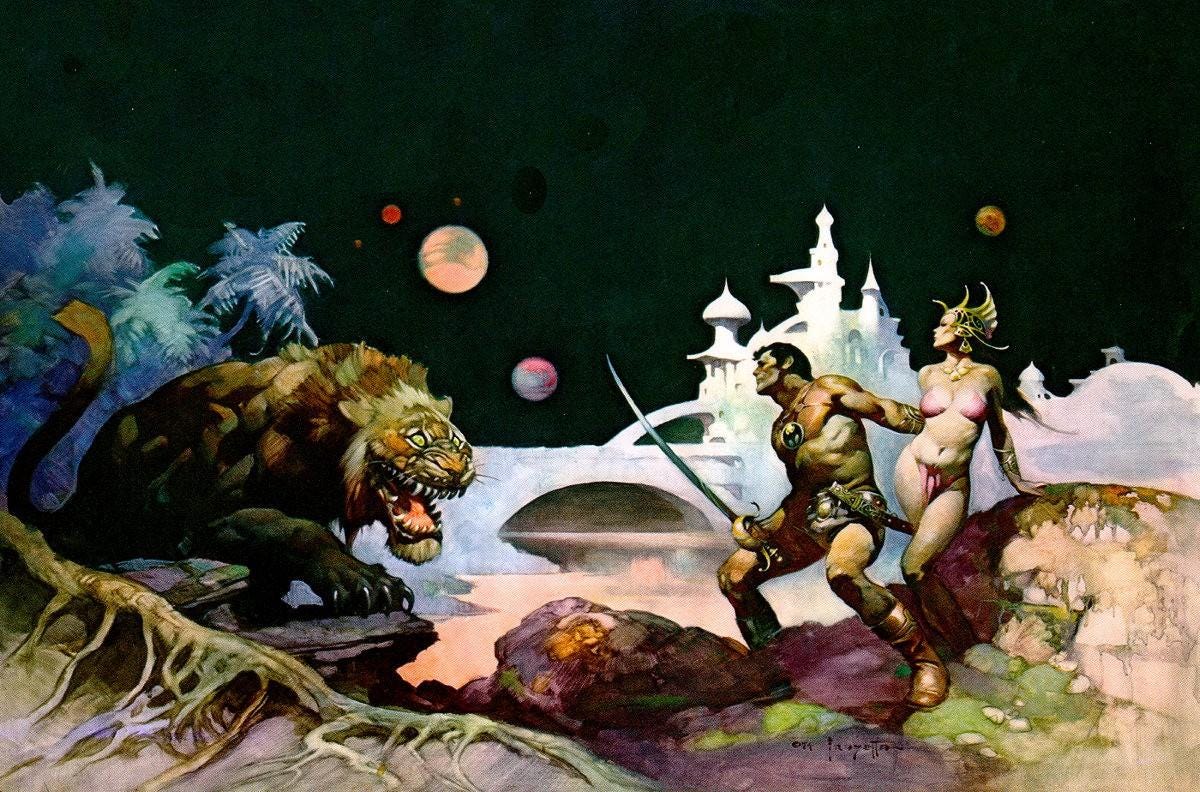John Carter is a man of range.
I settled on that simple word because that’s what you do, when words fail to contain. “Polymath” is too robotic, and “Renaissance Man” sounds too effete. John is many things, but a gay robot ain’t one of them.
So much has already been said about John, I wondered if I had anything unique to add. After careful consideration, I think I do.
By my calculus, the dirty little secret behind his enormous success is that John Carter, warrior-bard of Mars, is ultimately a kind man.
By that, I don’t mean “nice”, or “agreeable”, or any version of feminized couth. It is kindness as the nexus of reason and empathy, where one doesn’t blind or hinder the other. What he does is extend a rugged generosity of spirit to his friends and fellow travelers, which serves to multiply the courage and vigor of the enterprise as a whole. John receives accolades because he isn’t afraid to give those out when they are warranted. He builds up others, who then build him up in return, establishing a self-amplifying feedback circuit of the worthy.
And when he is cruel, he is cruel to the vicious, the spiteful, and those terminally deranged, psychopathic liars who haunt every network and mainframe. While I may be wrong, I don’t think I’ve ever seen him apply that mighty Martian chainsword of his to someone who did not eminently deserve a good chop.
John Carter is therefore the opposite of a grifter, in every conceivable way. The pursuit of truth comes first, and so the bounty grows more slowly. But because he speaks his full mind, he is impervious to the kinds of audience capture or morally panicked exodus that we see lesser writers on Substack constantly fall victim to. If you read a postcard of John’s, and find you disagree vehemently, and then keep right on reading… well then, sorry to say, you ain’t going anywhere. The Jeddak of Mars captures you, my friend, not the other way around. But, luckily, to be captured by a truth seeker is to be freed, to go and seek the truth yourself.
On this episode, John and I attempt to assess reality as a game in Story Mode, in which the players discover the characters they were designed to be. Does reality include a force that bends it into a story structure? If so, what is your role in writing and acting out your part? What happens when you fight against this force of nature, or try to tell bad, broken stories instead of good ones?
We also delve into archetypes, spoil popular movies, investigate time-vampires and educated zombies, puncture the post-scarcity delusion, analyze the enemies of achievement, and much, much more.
“You know how I got these scars?”
Listen, and you just might find out.
Enjoy.
The Cat Was Never Found is a reader-supported blog. I don’t publish much paywalled content, so your generous patronage is very much appreciated. As a reminder, a paid subscription will also grant you access to Deimos Station; the happiest place in cyberspace! Be sure to message me after subscribing for an invitation link.
P.S. If you found any of this valuable (and can spare any change), consider dropping a tip in the cup for ya boy. It will also grant you access to my “Posts” section on the donation site, which includes some special paywalled Substack content. Thanks in advance.













Share this post